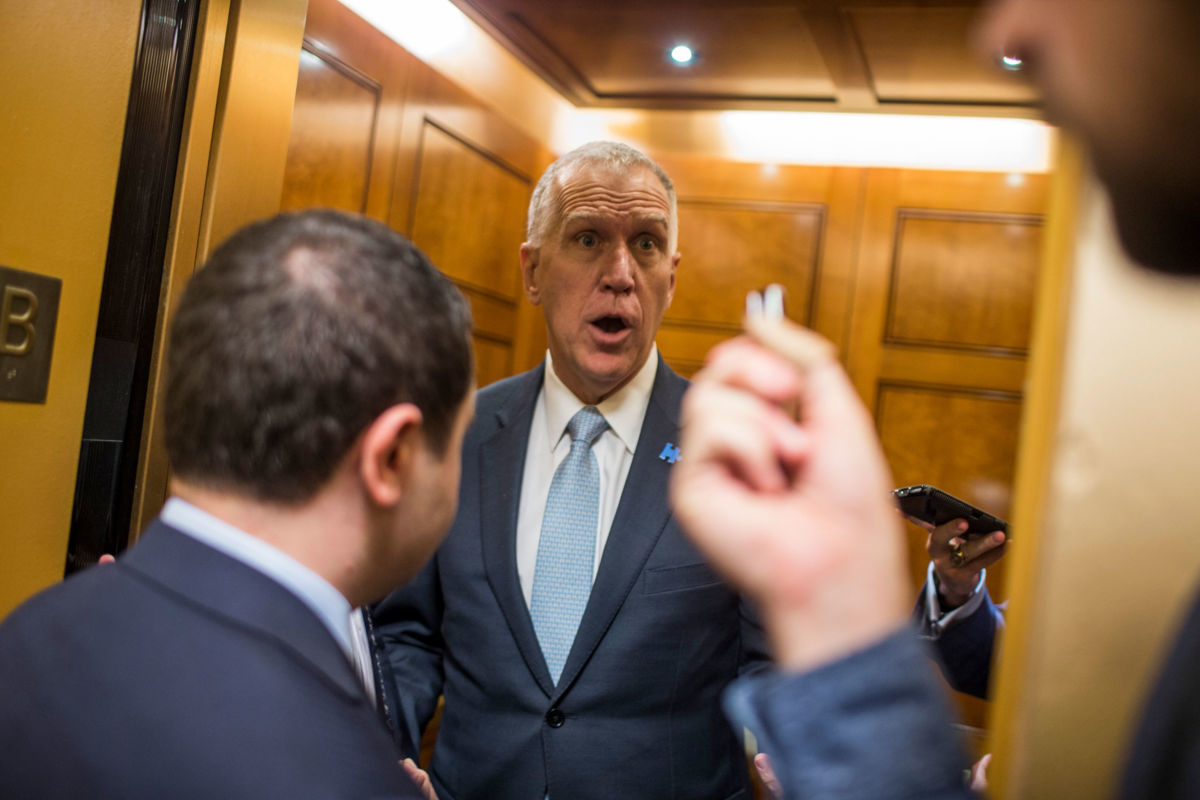Honest, paywall-free news is rare. Please support our boldly independent journalism with a donation of any size.
In case the Supreme Court declares the Affordable Care Act (ACA) unconstitutional in Texas v. Azar, 18 Senate Republicans are backing “The Protect Act,” which they say would “ensure that Americans with pre-existing conditions will have access to health care that covers their pre-existing conditions.” But the bill, from Senator Thom Tillis, falls far short of its purported goal.
Fortunately, the ACA remains the law of the land. Insurers are already barred from using the tactics that the new Senate bill would prohibit, and millions of people are accessing affordable health coverage as a result. Moreover, as legal experts explain, the legal reasoning behind the U.S. district court ruling that struck down the ACA in the Texas case is extraordinarily weak, prompting even committed ACA opponents to predict it will be overturned. If the Texas plaintiffs ultimately succeed, however, the Senate bill would do little to protect people with pre-existing conditions.
The bill would reinstate three protections at risk in the Texas case — prohibiting insurers from denying applicants based on pre-existing conditions, charging higher premiums due to a person’s health status, and excluding pre-existing conditions from coverage. But it would leave many others on the cutting room floor.
Under the bill, insurers could:
- exclude coverage of essential health benefits — such as maternity coverage, mental health care, and substance use treatment — as many plans did before the ACA;
- impose annual and lifetime limits on how much they will pay out (in large employer plans as well as individual-market and small business coverage);
- sell plans with no limit on how much enrollees could owe in out-of-pocket costs if they get sick (another change that would affect large employer plans as well as the individual and small-group markets);
- charge higher premiums based on non-health factors that can strongly correlate to health risk, including gender; and
- charge older people (most of whom have pre-existing conditions) far more, compared to younger people, than the ACA allows.
In most states, the Tillis bill likely would mean a return to pre-ACA insurer practices, with, for instance, women charged more than men for the same health plan and lifetime limits for tens of millions of people with employer coverage. Under the bill, a person who has cancer technically could buy a plan and not be charged a higher premium due to the illness. However, his or her benefits could run out because the insurer imposes an annual or lifetime limit, or the plan might not cover the prescription medicines that treat the cancer. Likewise, someone with a substance use disorder would be eligible to buy a plan, and the plan could not exclude the pre-existing condition outright. But insurers would not have to cover substance use disorder treatment or any other essential health benefit a person might need.
Meanwhile, some 20 million non-elderly people — including many with pre-existing conditions — would lose coverage if the Supreme Court found the ACA unconstitutional, as both the law’s Medicaid expansion and marketplace subsidies would disappear. The Protect Act would do nothing to address these coverage losses.
The gaps in the Protect Act are not surprising. The bill’s 18 sponsors have supported ACA repeal, with most backing bills that would have had much the same consequences as the district court decision: causing millions of people to lose coverage, ending the ACA’s expansion of Medicaid to low-income adults, slashing financial assistance for low- and moderate-income marketplace consumers, and ending nationwide pre-existing condition protections.
Press freedom is under attack
As Trump cracks down on political speech, independent media is increasingly necessary.
Truthout produces reporting you won’t see in the mainstream: journalism from the frontlines of global conflict, interviews with grassroots movement leaders, high-quality legal analysis and more.
Our work is possible thanks to reader support. Help Truthout catalyze change and social justice — make a tax-deductible monthly or one-time donation today.
